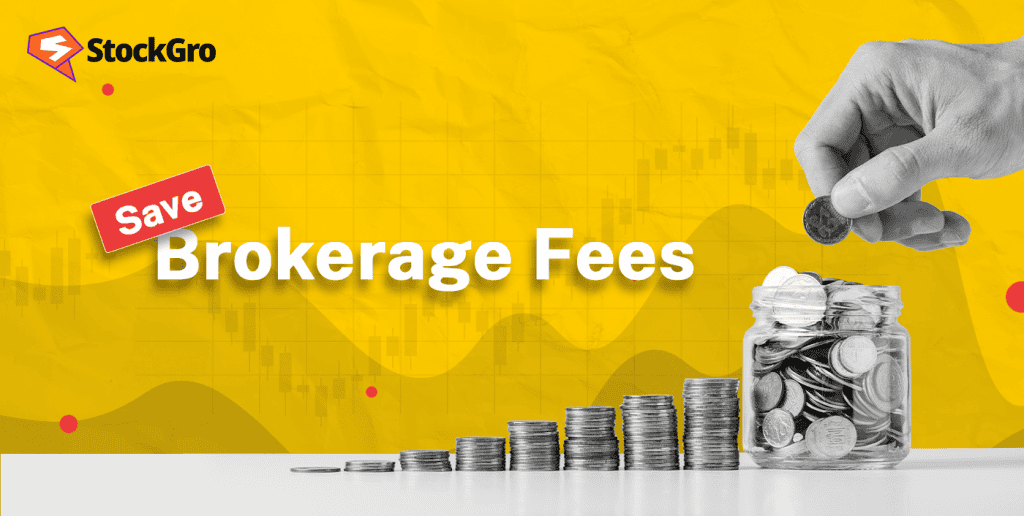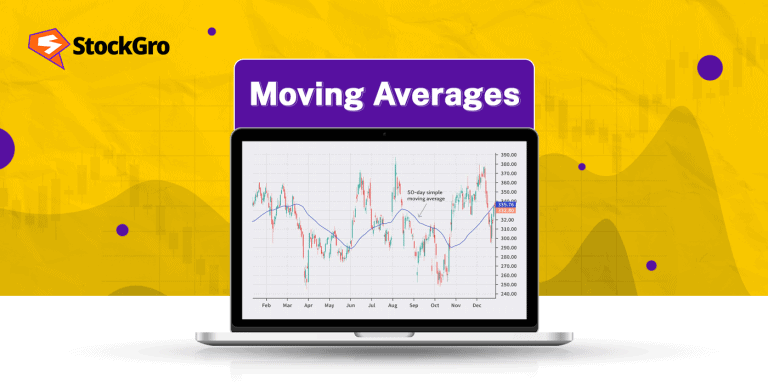
The union budget for FY2025 raises the securities transaction tax (STT) on futures and options by up to 60%. This raised derivative trading transaction expenses and, in turn, investor broking charges.
Broking fees are the most significant expense associated with stock investing. Investors need to understand these fees and determine how to reduce them in order to optimise returns and ensure long term financial success.
This article will assist in comprehending the importance of brokerage fees and the methods that should be implemented to mitigate them.
Learn more about: Start your brokerage firm in India: The ultimate guide
What are brokerage fees?
A fixed transaction fee or a percentage of the transacted value may be charged by brokers while facilitating buying and selling of shares, mutual funds or other financial instruments.
Due to the broker’s price structure, services, and trading platform, broking fees might vary greatly. Some brokers charge set fees, while others use a tiered structure based on account size or transaction activity.
Thus, investors must carefully assess brokers and their fee structure to choose the most cost effective alternative to maximise returns by eliminating unnecessary expenses. Below are the main types of brokerage fees:
| Types of brokerage fees | What do they mean? |
| Commission fees | Amounts that are assessed per trade or as a percentage of the transaction |
| Account maintenance fees | These are charges that are incurred to maintain the validity of one’s broking account |
| Inactivity fees | This fee is used when an individual fails to execute transactions within a specified timeframe |
Investors can prevent profits from being eroded by unforeseen expenses by being forthright about these fees.
Why minimising brokerage fees matters
Minimising broking fees is crucial for small scale investors, as even minor charges can significantly reduce profits, particularly when trading frequently. These fees impede long term growth and reduce the net return, thereby confounding the wealth accumulation process.
The power of compounding is enhanced for investors by minimising fees, which results in a greater amount of capital remaining invested. This is essential for the accumulation of wealth over time. Traders can enhance their financial outcomes and optimise their returns by selecting brokers with low or negligible fees.
Understand more about: 6 helpful tips on financial literacy for teens and young adults
Strategies to minimise brokerage fees
| Strategy | Explanation |
| Low cost brokers | Low cost brokers like discount brokers prioritise necessary services over frills, cutting fees. This makes them potentially suitable for cost conscious traders who want to reduce transaction costs without sacrificing trading expertise. Reduced spending boosts returns. |
| Use no commission platforms | No-commission platforms eliminate per-trade fees, rendering frequent trading cost-effective. |
| Choose the right trading frequency | The cost of overtrading is elevated. In order to mitigate cumulative fees, consolidate transactions and implement a long-term strategy. |
| Implement automated investment instruments | Numerous brokers provide automated investment services or robo-advisors that are less expensive than conventional advisory services. These tools enable investors to establish diversified portfolios while simultaneously reducing the expenses associated with human advisory services. |
Additional tips to lower brokerage charges
| Strategy | Explanation |
| Leverage promotions and offers | Several brokers provide new consumers with initial discounts or free trades. Take advantage of these promotions to reduce expenses. |
| Understand fee structures | Unique fees are associated with each broker. Know all fees to avoid surprises. |
| Negotiate | Many brokers negotiate lower fees with high volume traders, lowering trading costs. |
Comparison of full service brokers vs discount brokers
Complete financial advice, portfolio management, and market analysis are offered by full service brokers. On the other hand, these services are priced at a premium, frequently incorporating both commission-based and advisory fees.
Alternatively, discount brokers provide fundamental trading services at substantially reduced rates, with an emphasis on the execution of transactions without the need for additional advisory assistance. The fee structures of these platforms are generally minimal, with fixed per-trade fees or even zero-commission options on specific platforms.
Selecting a discount broker can be advantageous for investors. With restricted capital and fewer requirements for advisory services, they can save substantially on fees and reinvest the savings to achieve longer-term growth. Discount brokers allow new investors to focus on portfolio development rather than costly broking costs by easing financial restraints.
Discount brokers allow younger or tech savvy investors to manage trades independently on user friendly digital platforms. They provide vital tools and real time data without full service broker expenses. This simplicity cuts expenses, offering investors more strategy control and increasing portfolio growth and long term returns.
Understand more about: Unlocking prosperity: The transformative power of financial literacy
Conclusion
In order to achieve long-term trading success, it is essential to reduce broking fees, including securing the lowest brokerage fees, as this enables the optimisation of investment growth and the preservation of profits.
By selecting the appropriate broker and implementing cost-effective strategies, investors can reduce superfluous expenditures and make more informed financial decisions that generate superior returns over time.
FAQ’s
- How do broking fees operate and what are they?
Brokers impose fees on traders for the facilitation of transactions, which encompass stock purchases and sales. These expenses may encompass a transaction percentage, a fixed rate per trade, or account maintenance and they are contingent upon the broker and service. It is essential to understand these expenses as they have a direct impact on net returns, particularly for small scale frequent merchants.
- How can I avoid paying high brokerage fees?
To circumvent exorbitant fees, one must opt for discount brokers that provide reduced rates or no commission platforms. Consolidating transactions and restricting the frequency of trades can also contribute to the reduction of cumulative costs. Furthermore, review fee structures and capitalise on promotions to prevent concealed expenses. Conduct routine evaluations of your broker’s services to guarantee that you are reducing superfluous expenditures.
- Are zero commission trading platforms really free?
Zero commission platforms eliminate per-trade fees; however, they are not wholly free. They may generate revenue through alternative methods, such as fees for supplementary services, wider bid-ask spreads, or order flow payments. It is imperative to comprehend the circumstances in which indirect charges may be relevant, despite the fact that they contribute to the reduction of direct trading expenses, in order to prevent any unforeseen expenses.
- Difference between full service and discount brokers?
Full-service brokers provide a comprehensive range of services, such as portfolio management and personalised financial advice; however, they are associated with higher fees. In contrast, discount brokers prioritise the execution of transactions at a reduced cost and with a reduced number of services. Discount brokers are frequently advantageous to younger investors, as they enable them to invest their savings and minimise fees, thereby
Achieving superior long term growth.
- How much are broking fees?
Broking fees are contingent upon the service type and the broker and they can range from zero commission to a few percentage points of each transaction. The fees charged by full-service brokers are generally higher, whereas discount brokers offer minimal or no trading fees. Evaluate fee structures and compare platforms to gain a comprehensive understanding of the total costs.

